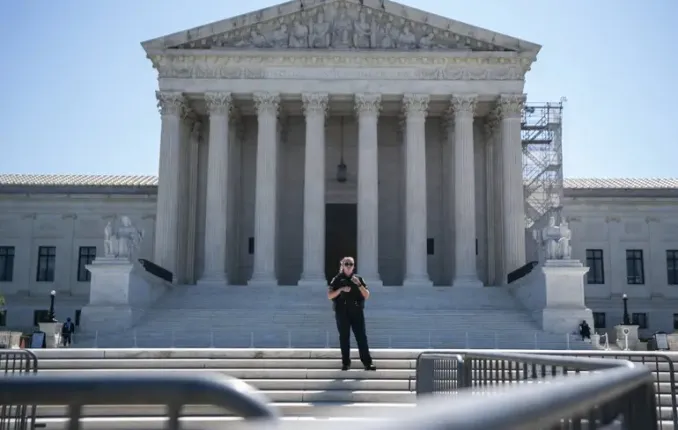Supreme Court Allows Trump to Implement Birthright Citizenship Restriction

The U.S. Supreme Court ruled Friday that it will allow the Trump administration to partially implement its sweeping changes to birthright citizenship. This means the president has the right to push through his executive order that would limit the automatic granting of citizenship to children born in the United States unless one of their parents is a permanent resident. The ruling split the justices along political lines, with six voting in favor and three dissenting. The Supreme Court’s decision significantly narrowed the ability of judges to block presidential initiatives at the national level. Now, such powers are limited — courts will not be able to issue bans that would apply to the entire country at once, except in cases involving lower federal courts and specific states. In particular, several district courts have blocked the implementation of Trump's executive order in several states — Washington, Maryland, and Massachusetts — and other regions. At the same time, given the court's decision, the administration already has the right to reactivate work on the implementation of its project, but, according to the new rules, it will have to wait 30 days before applying such measures. Of course, a final decision on the constitutionality of this executive order has not yet been made. Case law indicates the probable unconstitutionality of the restrictions introduced in this area, but the issue remains open for the future and may well return to the Supreme Court. In the near future, given the court's decision, individual plaintiffs will be able to file new class actions — in order to protect their rights or interests. In his official Twitter account, as well as on the Truth Social platform, President Trump called the decision a "giant victory." He stressed that even attempts to limit the right of US citizens to citizenship by birth have been largely stopped. “This is a blow to the constitutional values that are embedded in our country,” he emphasized. At the same time, liberal judges who were part of the Supreme Court spoke out against the broad interpretation of the decree and pointed out the possible negative consequences for the fundamental rights of citizens. During the hearing, the judges — appointed by different presidents of the political spectrum — were divided in their assessments: six supported the partial implementation of Trump’s measures, while three — criticized this step, accusing the administration of “legal manipulation” and political gain. Judge Sonia Sotomayor was especially harsh, emphasizing that the modern judicial system makes it impossible to guarantee any rights without the fierce risk of their removal in the future. She emphasized that it is not only the right to citizenship by birth that is at stake, but also other important constitutional freedoms that could be subjugated by any administration. The executive order, signed by Trump on the first day of his second term, limits the automatic granting of citizenship to children born in the United States if at least one parent is not in legal status. This approach contradicts the long-standing interpretation of the 14th Amendment to the Constitution, which guarantees that everyone born in the country should automatically become a citizen. The law has already been opposed by courts, expressing the possibility that it is unconstitutional. In implementing this ruling, the Trump administration has appealed to the Supreme Court to limit the actions of federal judges who have issued blanket bans on its implementation, a practice that has been ongoing since the beginning of his administration. In July ning The current order for the final resolution of this issue is likely to continue, as the case returns to lower courts for retrial. The Supreme Court, in view of the urgent need for a decision, decided to hear oral arguments from the parties, despite the fact that it usually considers such cases only on the basis of written submissions, and this happened back in May. Public discussions about this order and its legal nature are actively ongoing. The Department of Justice strongly emphasizes that the wide range of federal bans imposed by judges in various states are a manifestation of excessive judicial interference in the executive branch. In contrast, Trump's critics believe that these bans are evidence of illegal actions by the administration in relation to the fundamental rights of citizens. Depending on further decisions and rulings of the Supreme Court, the question of the constitutionality of the exceptional citizenship policy may again become the subject of judicial review and heated political debate.

